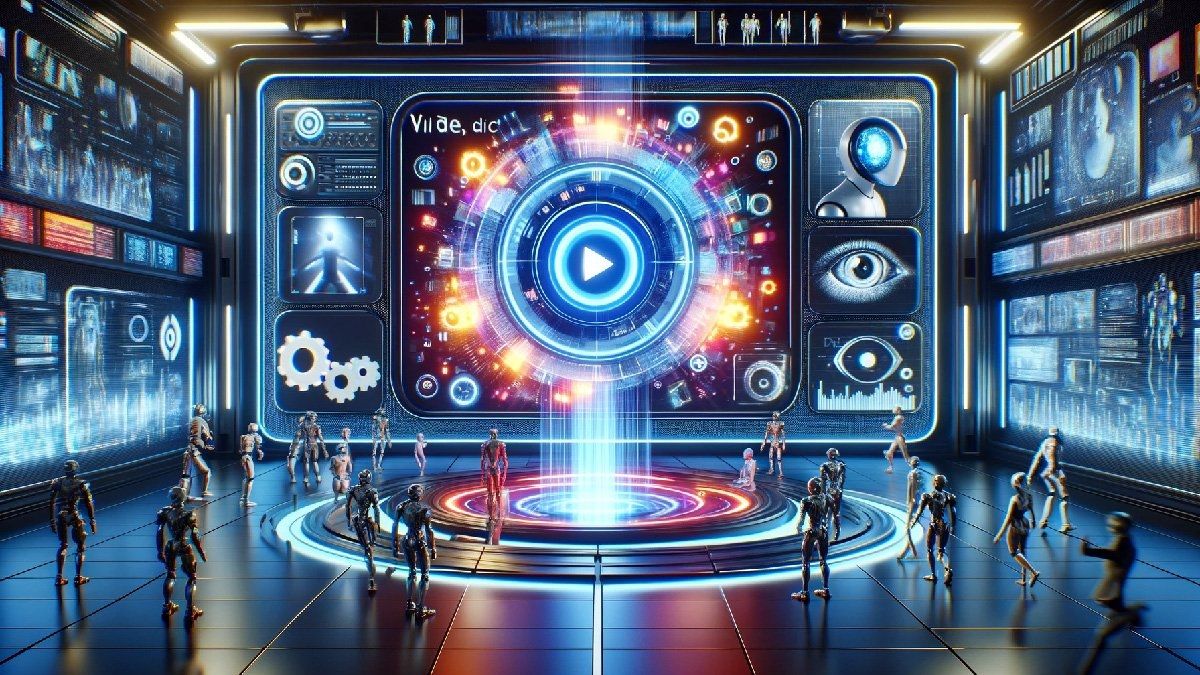Unveiling OpenAI's Sora: Impact on Art and Medicine
Core Concepts
OpenAI's Sora introduces a groundbreaking text-to-video model with the potential to revolutionize art and medicine. The author argues that while the technology offers significant advancements, it also raises ethical concerns regarding originality, data ownership, and human individuality.
Abstract
OpenAI's Sora is a revolutionary text-to-video AI model that combines DALL E 3 and ChatGPT to generate high-quality videos from simple text prompts. Despite its strengths in creating detailed scenes, there are limitations such as inaccuracies in physics and occasional confusion in prompt interpretation. The technology is poised to disrupt industries like Hollywood, sparking debates on the authenticity of AI-generated content versus human creativity. In medicine, generative AI shows promise in diagnostics but raises concerns about losing the personal touch crucial for patient care. Ethical considerations around privacy, security, and responsible AI development are paramount as these technologies evolve.
Exploring the Impact of OpenAI's Sora on Art and Medicine: A New Era of Generative AI
Stats
Sora combines DALL E 3 and ChatGPT.
It can create up to a minute of high-quality video.
Potential weaknesses include inaccurate physics and prompt interpretation issues.
Quotes
"Producers may start preferring AI-generated scripts over ones written by living writers."
"While AI can aid in accuracy and efficiency, it's essential that it doesn't overshadow the human aspect of medicine."
Key Insights Distilled From
by Anthony Raph... at medriva.com 02-26-2024
https://medriva.com/uncategorized/exploring-the-impact-of-openais-sora-on-art-and-medicine-a-new-era-of-generative-ai/
Deeper Inquiries
How might the rise of generative AI impact employment opportunities in creative industries?
The rise of generative AI, exemplified by OpenAI's Sora, could potentially have a significant impact on employment opportunities in creative industries. While AI can streamline certain processes and enhance productivity, there is a concern that it may lead to job displacement for human creators. In fields like art and filmmaking, where creativity and originality are highly valued, the use of AI-generated content may raise questions about the authenticity and uniqueness of works produced. This could result in a shift towards more automated production methods, potentially reducing the need for traditional roles such as scriptwriters or visual artists.
However, it's important to note that while some jobs may be at risk of automation, new roles centered around managing and utilizing generative AI technology may emerge. There will likely be a demand for individuals who can work alongside these systems to ensure they align with artistic visions or medical best practices. Additionally, human creativity and emotional intelligence remain essential components that cannot be replicated by machines entirely. Therefore, there will still be a place for human input and interpretation in creative endeavors even as generative AI becomes more prevalent.
What are some potential drawbacks of relying heavily on AI for medical diagnoses?
Relying heavily on AI for medical diagnoses presents several potential drawbacks that must be carefully considered before widespread implementation. One major concern is the risk of misdiagnosis or incorrect treatment recommendations due to limitations in the algorithms or data biases present in training sets. If not properly validated or monitored by healthcare professionals, AI systems could provide inaccurate assessments leading to patient harm.
Another drawback is the potential loss of personalized care and empathy typically provided by human healthcare providers. While AI excels at processing vast amounts of data quickly and efficiently, it lacks the emotional intelligence necessary to understand nuances in patient interactions or consider individual preferences when making diagnostic decisions.
Moreover, there are ethical considerations regarding data privacy and security when using sensitive health information within an automated system. Ensuring that patient confidentiality is maintained while utilizing AI technologies requires robust safeguards against unauthorized access or misuse of personal data.
Overall, while generative AI shows promise in improving diagnostic accuracy and efficiency within medicine, it's crucial to strike a balance between leveraging its benefits and mitigating these potential drawbacks through careful oversight from trained professionals.
How can ethical concerns surrounding AI-generated content be effectively addressed?
Ethical concerns surrounding AI-generated content can be effectively addressed through proactive measures aimed at promoting responsible development practices across industries utilizing this technology.
One key approach involves implementing transparent guidelines governing how generated content should be used ethically within specific contexts such as art creation or medical decision-making.
Additionally ensuring accountability mechanisms are put into place so developers take responsibility for any unintended consequences resulting from their creations.
Furthermore fostering open dialogue among stakeholders including developers regulators end-users helps identify address emerging ethical challenges associated with ai-generated content
By prioritizing transparency accountability communication we can create an environment where ai technologies serve society positively without compromising fundamental values such as privacy autonomy fairness
0
